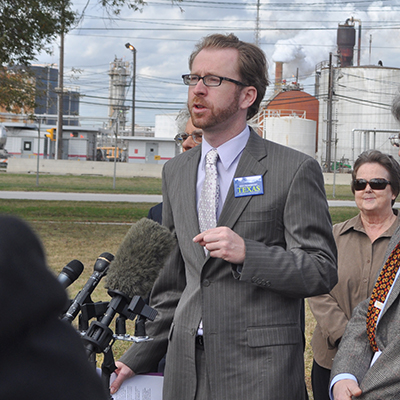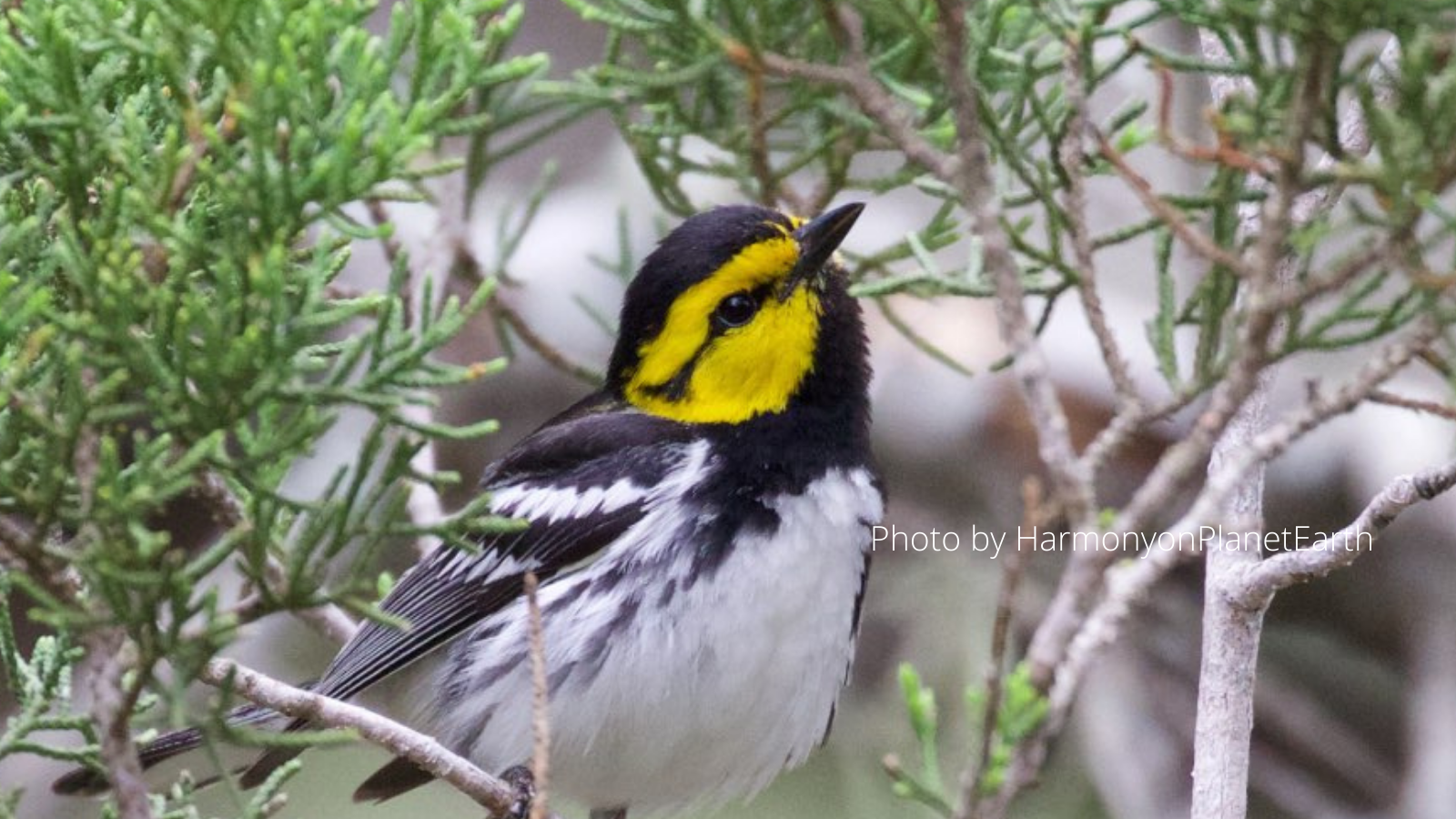
Texas General Land Office sues federal agency to remove rare bird from endangered species list
Lawsuit claims golden-cheeked warbler’s categorization undermines state’s “ability to maximize revenues”

The Texas General Land Office (GLO) filed suit Wednesday against the U.S. Fish and Wildlife Service (FWS), seeking to force the federal agency to remove the golden-cheeked warbler from the endangered species list. The GLO says that according to a 2020 federal court ruling, that songbird should no longer appear on the FWS’ endangered list — yet it does. In the complaint that led to that 2020 decision, the GLO claimed that the federal government limited the agency’s “ability to maximize revenues” due to warbler habitat on GLO land “lowering the property’s market value.”
This is not the first attack on the endangered status of the golden-cheeked warbler since the bird was originally listed as an endangered species in 1990. In 2017, the Texas Public Policy Foundation (TPPF) filed a petition seeking the warbler’s removal from the list based on a Texas A&M University study claiming a significant increase in available habitat. FWS rejected that petition, saying that “due to ongoing, widespread destruction of its habitat, the species continues to be in danger of extinction throughout its range.” Since Texas A&M published its study, some biologists have said that the methodology was flawed, leading researchers to overestimate warbler populations by as much as 1,000%.
The golden-cheeked warbler is a stunning songbird and the only bird species which nests entirely in the state of Texas; specifically, in the juniper-oak woodlands found in central Texas. This puts the species in direct conflict with developers who seek to build on this one-of-a-kind habitat — which will require clear-cutting large swaths of forest.
The warbler’s importance goes beyond its intrinsic value and place in Texas heritage. Travis Audubon, the central Texas chapter of the National Audubon Society, notes that the ecosystems that provide these birds their habitat also protect our air and water quality. The rare birds themselves attract tourists from around the world, adding up to $300 million to the Texas economy every year.
Through the GLO’s own choice of words, it’s clear that this attempt to delist the golden-cheeked warbler is driven by economic rather than scientific considerations. It is very disappointing to see that the GLO has chosen to focus on the revenue aspect of its stated mission rather than the other, more lasting part — prudent stewardship of state lands and natural resources.
Post by Michael Lewis, an environmental scientist with Environment Texas
Authors
Luke Metzger
Executive Director, Environment Texas
As the executive director of Environment Texas, Luke is a leading voice in the state for clean air and water, parks and wildlife, and a livable climate. Luke recently led the successful campaign to get the Texas Legislature and voters to invest $1 billion to buy land for new state parks. He also helped win permanent protection for the Christmas Mountains of Big Bend; helped compel Exxon, Shell and Chevron Phillips to cut air pollution at four Texas refineries and chemical plants; and got the Austin and Houston school districts to install filters on water fountains to protect children from lead in drinking water. The San Antonio Current has called Luke "long one of the most energetic and dedicated defenders of environmental issues in the state." He has been named one of the "Top Lobbyists for Causes" by Capitol Inside, received the President's Award from the Texas Recreation and Parks Society for his work to protect Texas parks. He is a board member of the Clean Air Force of Central Texas and an advisory board member of the Texas Tech University Masters of Public Administration program. Luke, his wife, son and daughters are working to visit every state park in Texas.

